Browse our comprehensive product guides and documentation

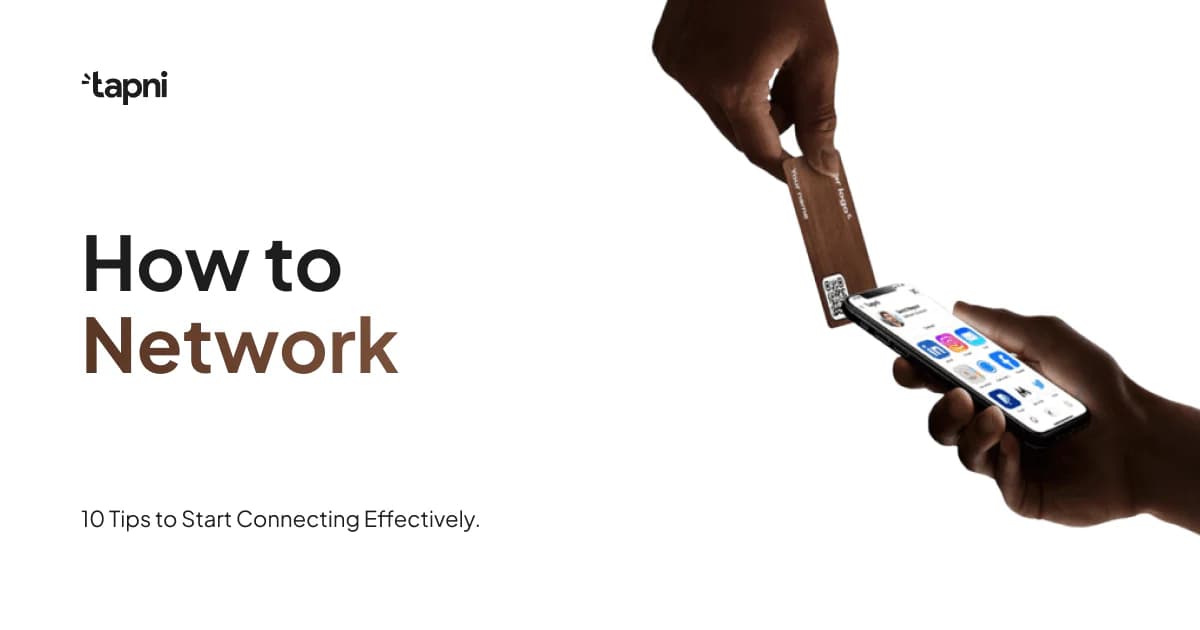
Networking is a crucial skill representing the basis of any professional and business relationship.
However, it seems that the art of networking represents a great challenge because it can easily slip into being pushy and not knowing where your boundaries are.
So how to network effectively?
Join us as we share our 10 tips to get you started and help build valuable connections.
Ready?
Let’s dive in!
Networking is the art of building and nurturing relationships with others.
It involves connecting with people who share similar interests, goals, or professions in order to create mutually beneficial opportunities.
As such, it can take many forms, from attending industry events and conferences to socializing with colleagues after work.
Understanding networking can give you a good indication of what effective networking should look like.
At its core, networking is about making connections that can help further your personal or professional goals.
However, it's important to remember that networking isn't just about what you can get out of it – it's also about what you can give back.
Building strong relationships requires trust, respect, and a genuine desire to help others succeed.
If you take into account that networking can:
✨ Help you get useful insights and knowledge,
✨ Open doors to new business opportunities and connections,
✨ Build visibility and credibility,
✨ Foster a sense of community among professionals who share similar interests, etc.,
it becomes clear why quality networking offers multifold benefits.
So how to use networking to your advantage?
We hope our 10 tips on how to network effectively can help.
This seemingly simple question doesn’t have a straightforward answer because it depends on many factors:
✨Your goals - Are you looking for business partnerships? Job opportunities? Mentorship?
Depending on your aim, different types of people might be more beneficial for you to connect with.
✨The industry or field that interests you - Who are the leaders and influencers in that space? Who are the decision-makers at companies where you'd like to work or partner with?
Another important thing: don't discount those just starting out in their careers.
You never know where a valuable connection may come from.
In addition, don't limit yourself geographically either.
Thanks to technology and virtual conferences, it's easier than ever to connect with people from all over the world who share similar interests and goals.
Note: Diversify your connections and keep an open mind about potential collaborators.
One of the most common places to start networking is at industry events such as conferences, seminars, and trade shows.
Considering they are designed for professionals in a particular industry or niche, it’s easier to connect with like-minded individuals.
Another great place to network is online through social media platforms such as LinkedIn, Twitter, Facebook, etc.
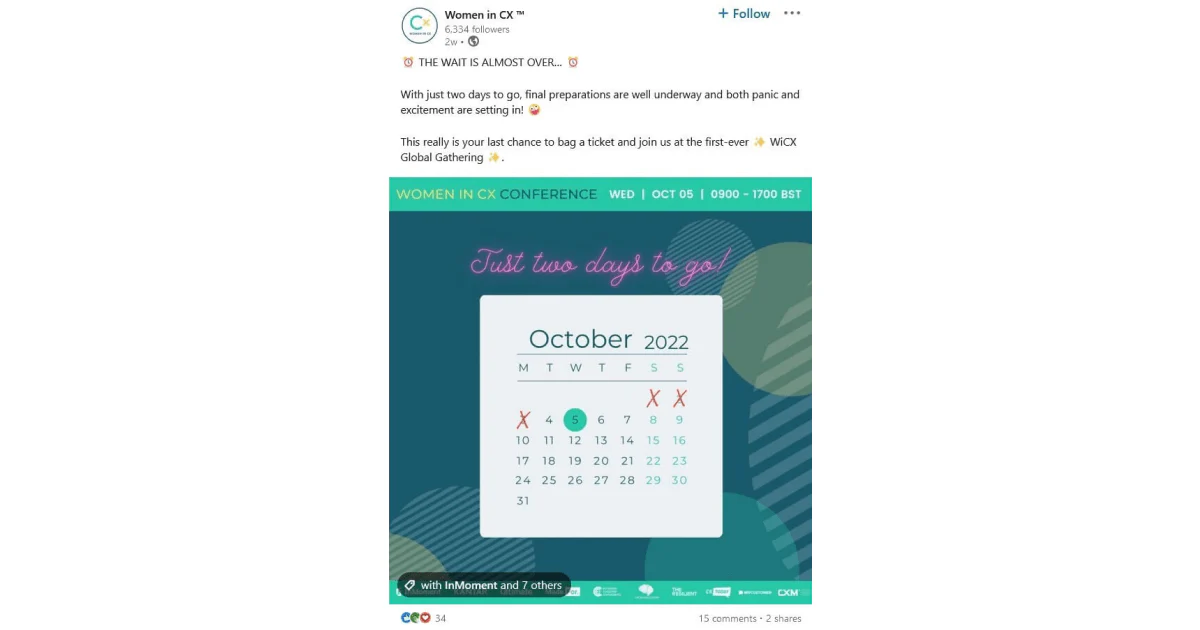
Join groups related to your field or interests and participate in discussions to showcase your expertise while building relationships with others.
Networking can also happen outside of traditional business settings.
Consider joining local organizations such as chambers of commerce, non-profit boards or community service groups that align with your interests and values.
Furthermore, let’s not forget about informal settings, either - networking can happen anywhere, from coffee shops, happy hours, or even the gym.
The benefit of casual settings is that it allows attendees more opportunities for conversation and relationship-building that may not be possible in formal settings.
Strike up conversations with those around you, and don't be afraid to exchange contact information if there's potential for future collaboration.
Note: Having a digital business card like Tapni enables you to quickly and smoothly exchange contact info via the NFC chip or the QR code.
With the rise of remote work and digital communication tools, it is now easier than ever to connect with others in your industry without being physically present. As professionals embrace remote working abroad, it becomes even more essential to build a strong virtual network to maintain career growth and opportunities.
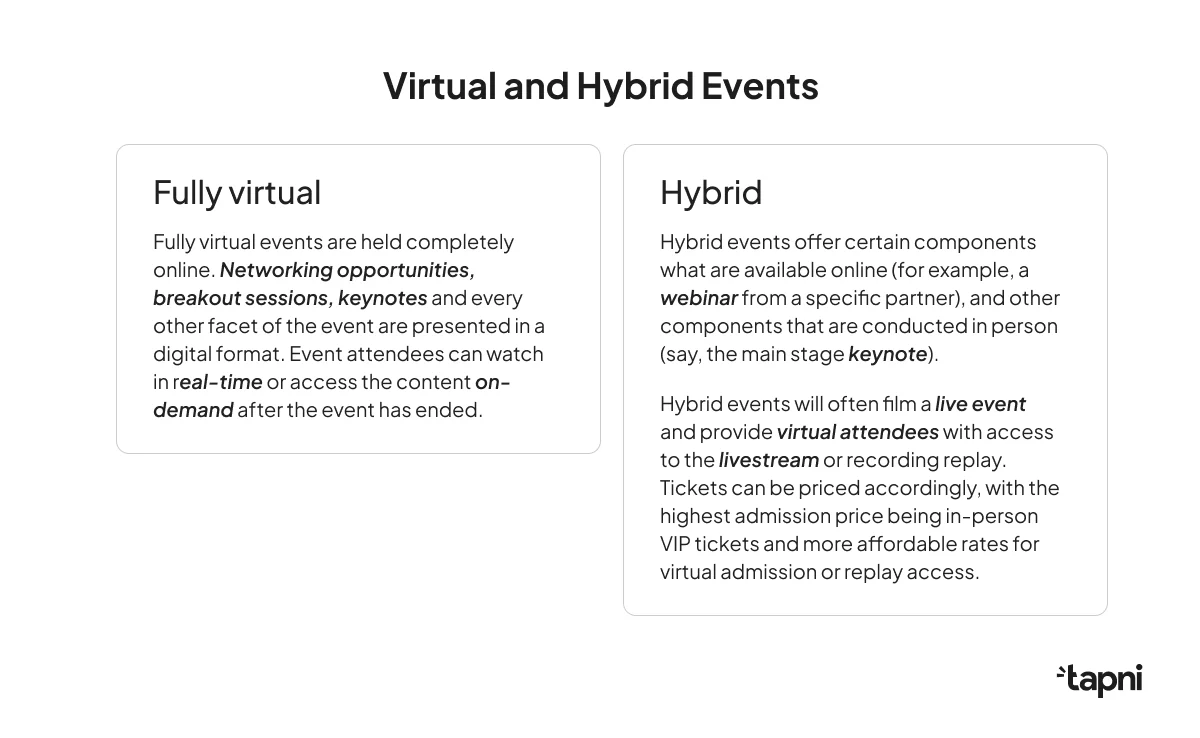
Virtual networking may not replace face-to-face interactions entirely, but when done effectively, it can expand opportunities beyond geographic limitations while saving time and resources.
Networking etiquette is crucial in establishing meaningful connections.
It's important to remember that networking is a two-way street, and mutual respect should always be present.
Some aspects you should pay attention to are to:
Networking etiquette goes beyond the way you dress or talk - it also refers to food and drinks.
People generally get together around food and drinks because it creates quite a welcoming and comfortable atmosphere.
However, when it comes to networking events, things may be a bit different from what you expect.
While hanging around the bar and stirring conversations as you wait for your drink is ok, I wouldn’t recommend lingering around the buffet table.
People approach that table for one reason, to eat, so imagine having to do handshakes while holding a plate, having your mouth full, etc. Not very practical, right?
Taking the first step is always the hardest, but the more you network, the better you’ll become at it.
In the beginning, start small. It's easy to feel overwhelmed when trying to network, so start by reaching out to people within your current circle of contacts.
Maybe there's someone at work who works in a different department that you'd like to learn more from.
Or perhaps there's an old classmate who now works in a field that interests you.
Building relationships is undoubtedly a key component of effective networking.
But how do you go from meeting someone for the first time to cultivating a strong connection? It all starts with taking the time to get to know the other person.
✨Listen actively — When someone is speaking, give them your undivided attention and ask questions that show you're interested in what they have to say.
✨Be authentic — Don't try too hard or be someone you're not - people can usually spot insincerity from a mile away.
✨Find common ground with the other person — Whether it's a shared interest, hobby, or career path, having something in common gives you something to discuss and bond over.
✨Follow up after the initial meeting — Send an email or connect on social media to keep the conversation going and stay top-of-mind with the other person.
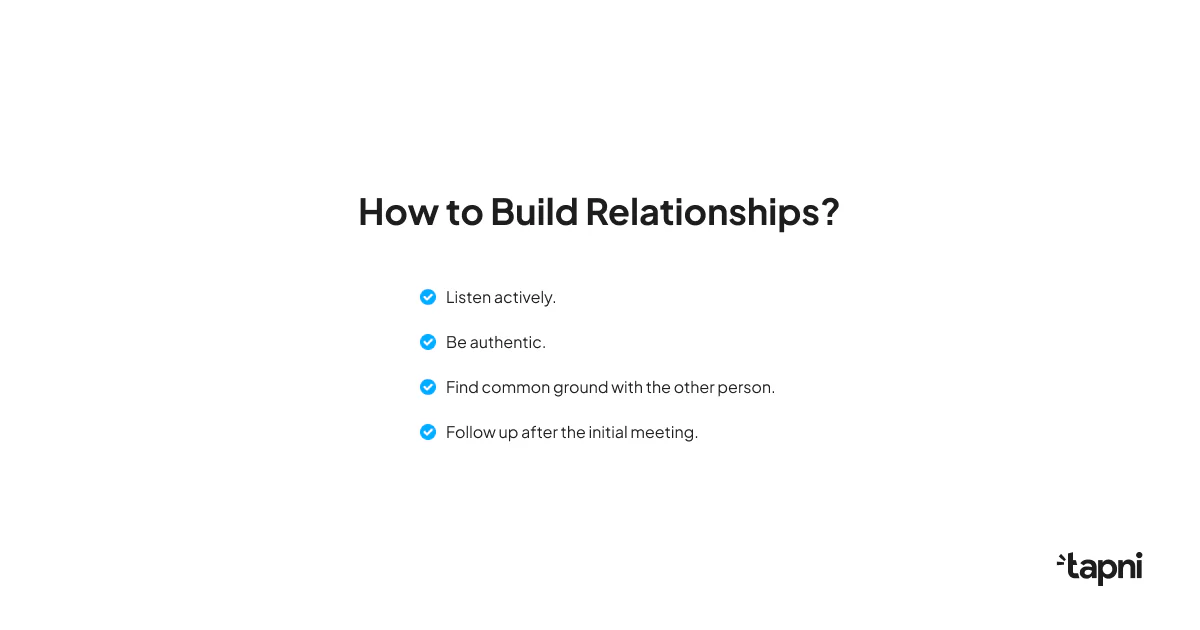
Once you’ve made a few connections, don’t forget to follow up, so you can maintain and nurture those relationships.
After attending a networking event or meeting someone new, it's important to follow up if you want to build a lasting relationship.
This is the part where most people fail - they either take too long to follow up, or they don’t follow up at all. And it’s such a mistake - you should strike while the iron is hot.
Thus, if you want to do a proper follow-up, and trust me, you do,
✨Be timely in your response - Don't wait too long before reaching out, as the person may forget who you are or lose interest.
✨ Send an email within 24-48 hours expressing your gratitude for meeting them and referencing something discussed during your conversation.
✨ Personalize your message and make sure it's not a generic copy-paste template, but tailored specifically to the individual and their interests or needs.
✨ Offer value in your follow-up communication and provide helpful resources related to what was discussed, such as articles or industry reports that they might find interesting.
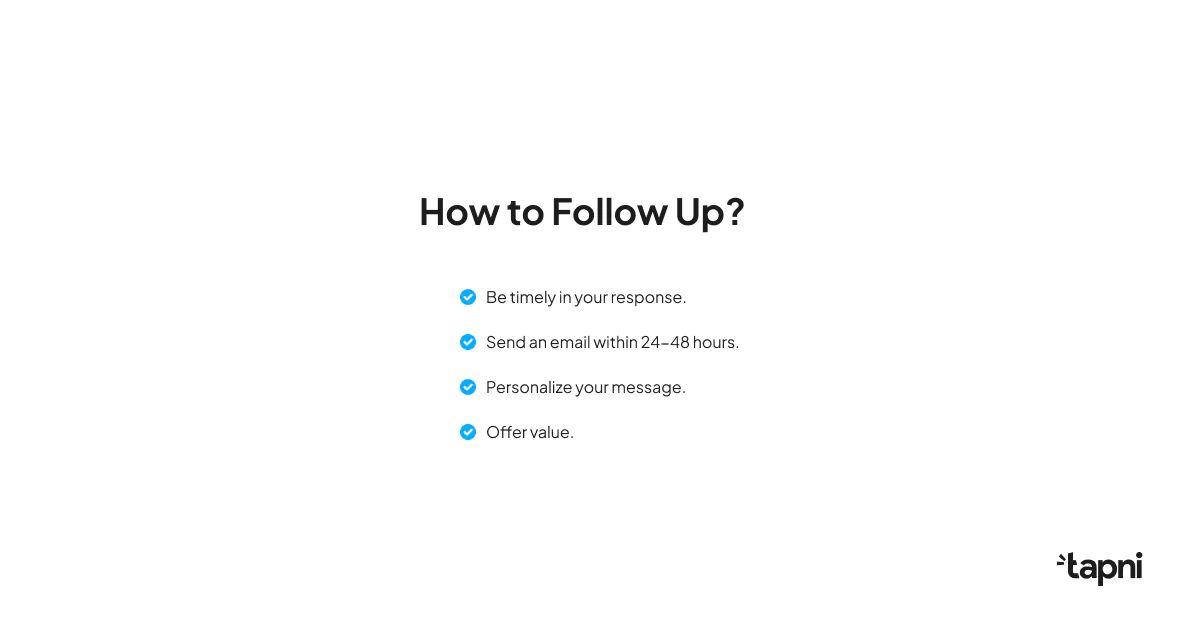
ProTip: Did you know that with digital solutions like Tapni, you can send your contacts directly to your CRM and schedule follow-ups?
Building a network is just the beginning - maintaining and nurturing it is equally important.
Regularly reach out to your contacts through email, phone calls, or face-to-face meetings.
Offer support, share relevant articles or job openings, and congratulate them on their achievements.
By staying connected and genuinely interested in their lives and careers, you'll strengthen the relationships and ensure your network remains a valuable asset.
Introducing your network to each other at a networking event provides multiple mutual benefits.
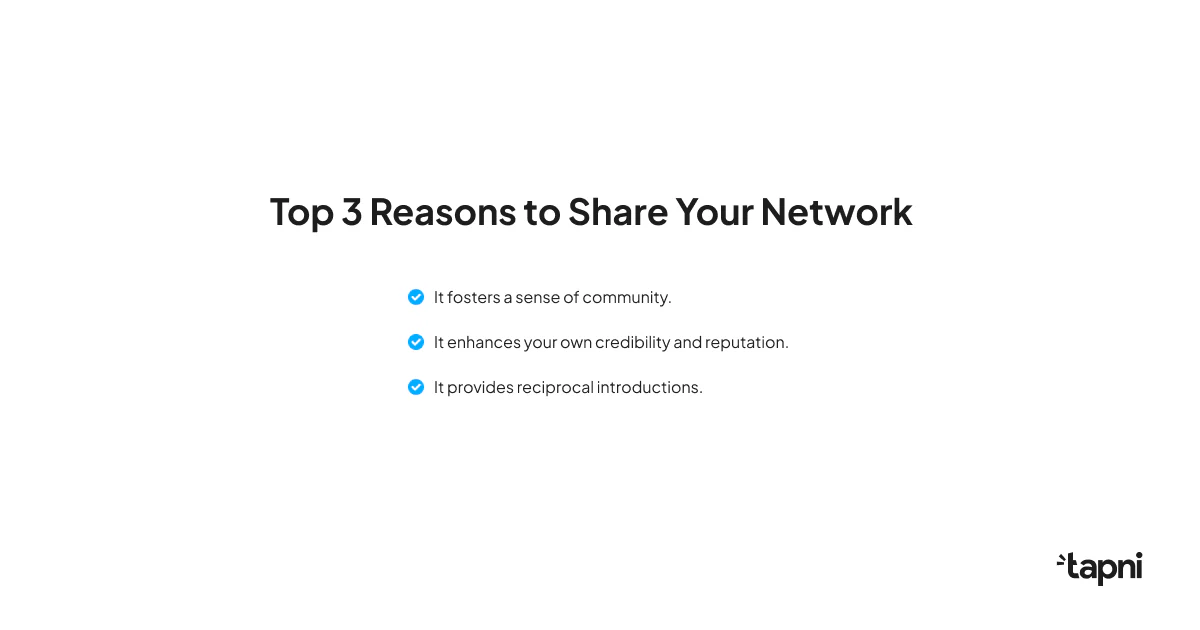
For starters, it fosters a sense of community and collaboration within your network. By connecting individuals who share common interests or complementary skills, you create opportunities for them to support and collaborate, leading to potential partnerships, knowledge sharing, and mutual growth.
Furthermore, sharing network enhances your own credibility and reputation.
If you facilitate meaningful connections, you demonstrate your ability to bring valuable people together and position yourself as a connector and resource within your network.
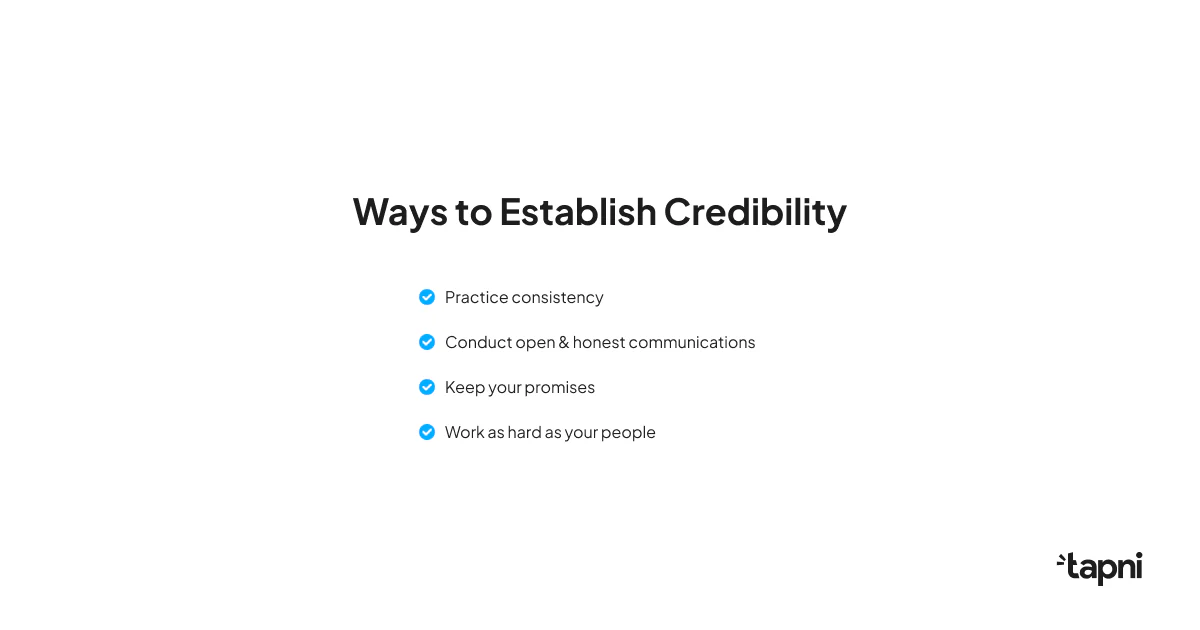
And a result?
Strengthening your relationships with existing contacts and attracting new people eager to benefit from your network.
It can lead to reciprocal introductions.
When you connect two people who have a positive experience collaborating or working together, they are more likely to reciprocate by introducing you to valuable contacts in their own networks.
This way, you expand your reach and open doors to new opportunities.
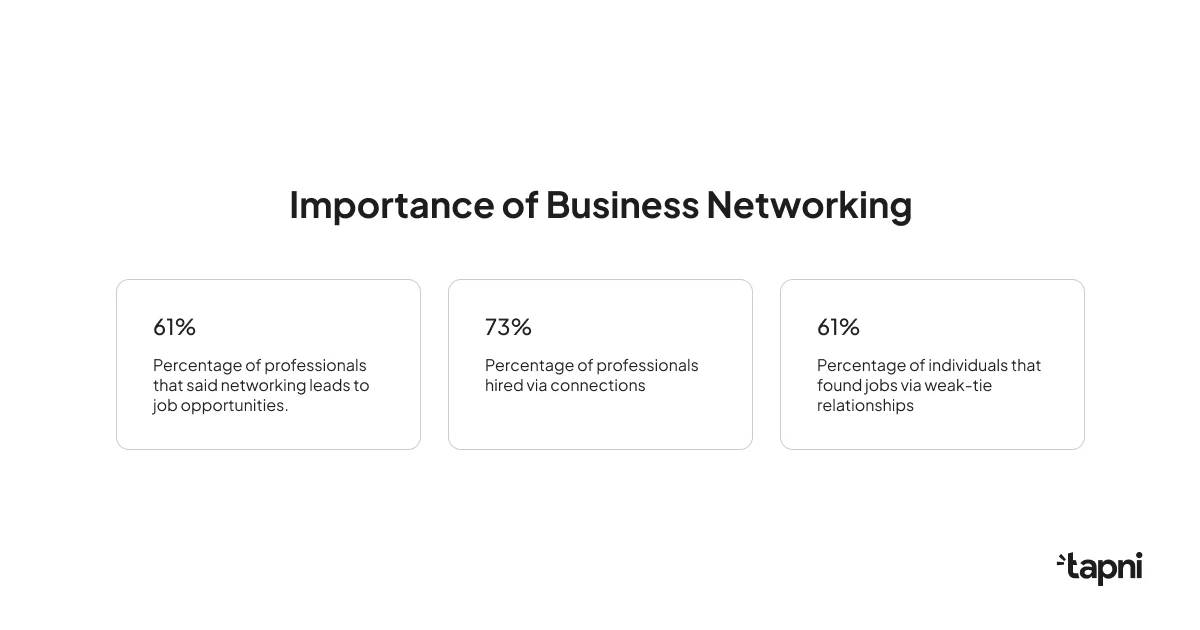
So next time you attend a networking event, keep in mind that sharing is caring and that by sharing your network, both you and your fellow speaker will enrich your network base. 🤩
It's good to remember that networking is not a one-time event but an ongoing process. Therefore, it’s crucial to build relationships before you need them.
Connect with individuals, follow up after initial interactions, and nurture those relationships over time.
Furthermore, offer assistance, share relevant resources, or introduce them to other contacts when appropriate.
Note: Cultivating relationships before you require immediate support will make the networking process more organic and mutually beneficial.
That’s all, folks! These were our 10 tips on how to network effectively.
If you are hungry for more, don’t hesitate to jump to our blog, 16 Networking Event Tips for Beginners - The Ultimate Guide.
Although some people are more natural at networking than others, networking is a skill that can be developed and refined over time.
By following the above 10 tips, you can start building valuable connections and reaping the benefits of an extensive network.
And as a cherry on top, we have a digital solution to kickstart your networking journey.
How can Tapni be of assistance?
✨ You can make fully customizable digital business cards and accessories like stickers, keychains, and wristbands.

✨ Organize your new contacts into meaningful lists you can further edit, reorganize, move, tag, etc.
✨ Schedule follow-up reminders so you can reach out to new contacts timely.
✨ Automatically send messages to people who visited your profile.
✨ Scan paper business cards and save the info on them.
✨ Use analytics tools to measure ROI, see who checked your profile, etc.
✨ Share your info easily via an email, a URL, scanning, etc.
And this is just the tip of Tapni’s iceberg.
Interested to discover more?
Create your Tapni digital business card today so you can start connecting effectively!
You can start small by tapping into the network of people you know. Furthermore, be engaged and listen actively, and don’t be shy to share your thoughts about a topic.
First, check your known network, and when attending an event, offer to share your network because there is a big chance the other person will do the same for you.
Of course, once you create connections, maintain and nurture them by staying in touch.
Strong networking skills combine good communication skills but also genuine interest and empathy. Furthermore, they require active listening and patience.
Top 25 Business Card Statistics You Should Know In 2023
How To Create a Digital Business Card - 6 Steps To Digitalization
70 Inspirational Networking Quotes That Resonate With People